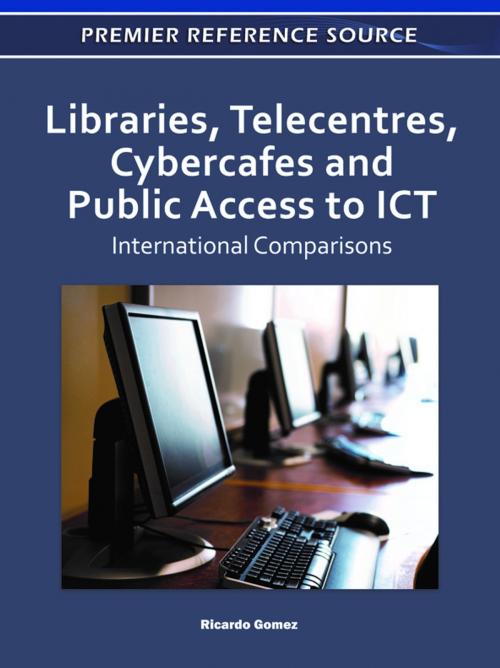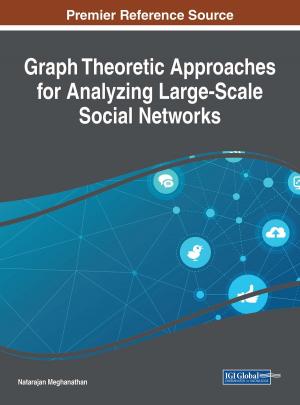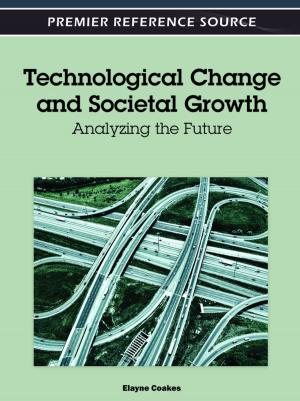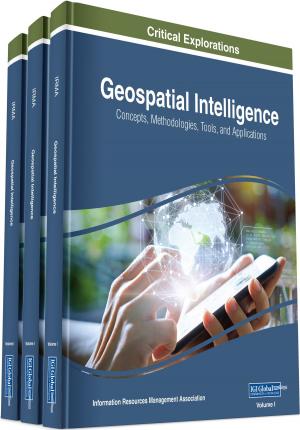Libraries, Telecentres, Cybercafes and Public Access to ICT
International Comparisons
Nonfiction, Reference & Language, Language Arts, Library & Information Services, Computers, Internet, Social & Cultural Studies, Social Science| Author: | ISBN: | 9781466606074 | |
| Publisher: | IGI Global | Publication: | July 31, 2011 |
| Imprint: | Information Science Reference | Language: | English |
| Author: | |
| ISBN: | 9781466606074 |
| Publisher: | IGI Global |
| Publication: | July 31, 2011 |
| Imprint: | Information Science Reference |
| Language: | English |
Public venues are vital to information access across the globe, yet few formal studies exist of the complex ways people in developing countries use information technologies in public access places. Libraries, Telecentres, Cybercafes and Public Access to ICT: International Comparisons presents groundbreaking research on the new challenges and opportunities faced by public libraries, community telecentres, and cybercafés that offer public access to computers and other information and communication technologies. Written in plain language, the book presents an in-depth analysis of the spaces that serve underserved populations, bridge “digital divides,” and further social and economic development objectives, including employability. With examples and experiences from around the world, this book sheds light on a surprising and understudied facet of the digital revolution at a time when effective digital inclusion strategies are needed more than ever.
Public venues are vital to information access across the globe, yet few formal studies exist of the complex ways people in developing countries use information technologies in public access places. Libraries, Telecentres, Cybercafes and Public Access to ICT: International Comparisons presents groundbreaking research on the new challenges and opportunities faced by public libraries, community telecentres, and cybercafés that offer public access to computers and other information and communication technologies. Written in plain language, the book presents an in-depth analysis of the spaces that serve underserved populations, bridge “digital divides,” and further social and economic development objectives, including employability. With examples and experiences from around the world, this book sheds light on a surprising and understudied facet of the digital revolution at a time when effective digital inclusion strategies are needed more than ever.















